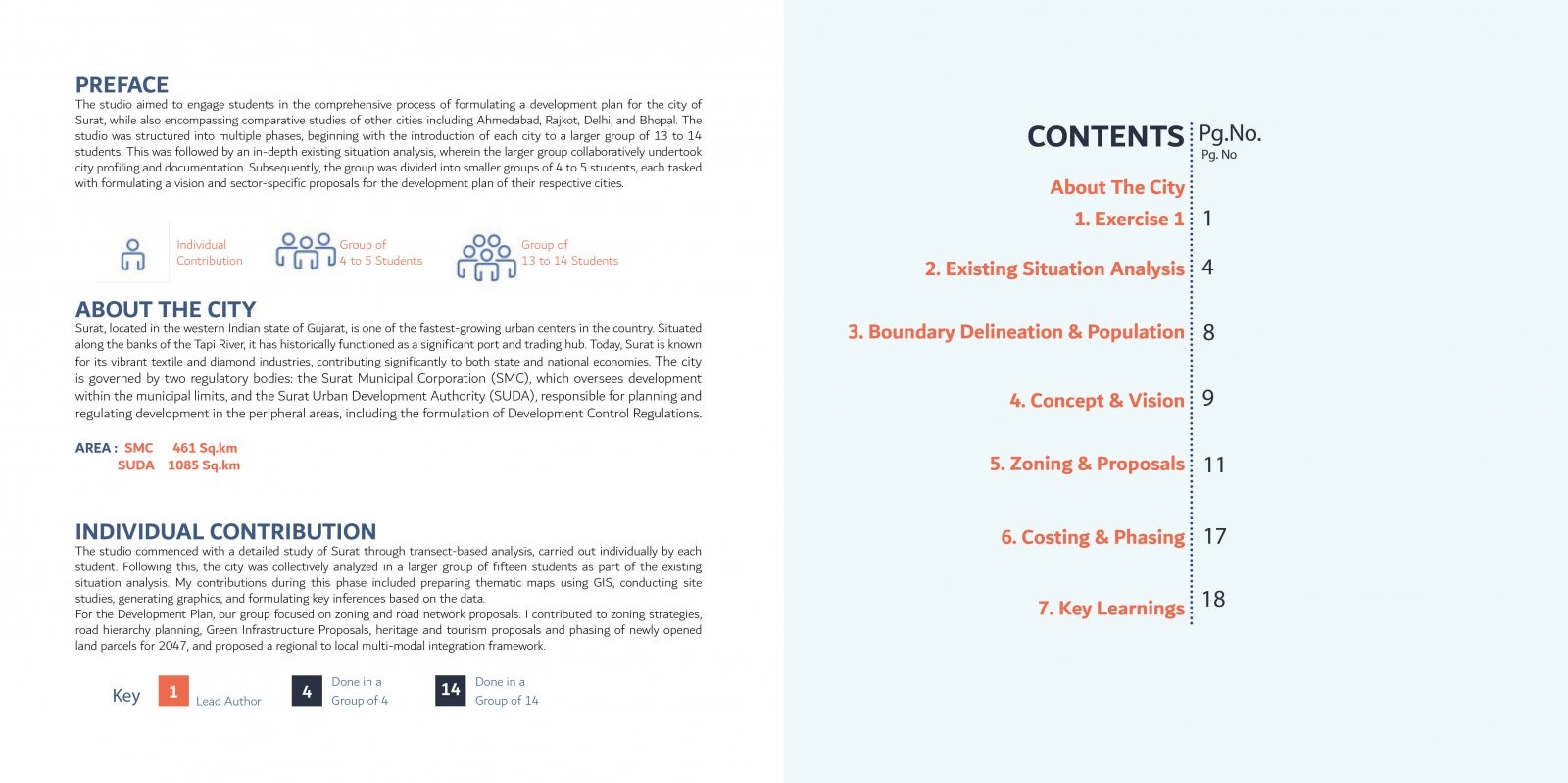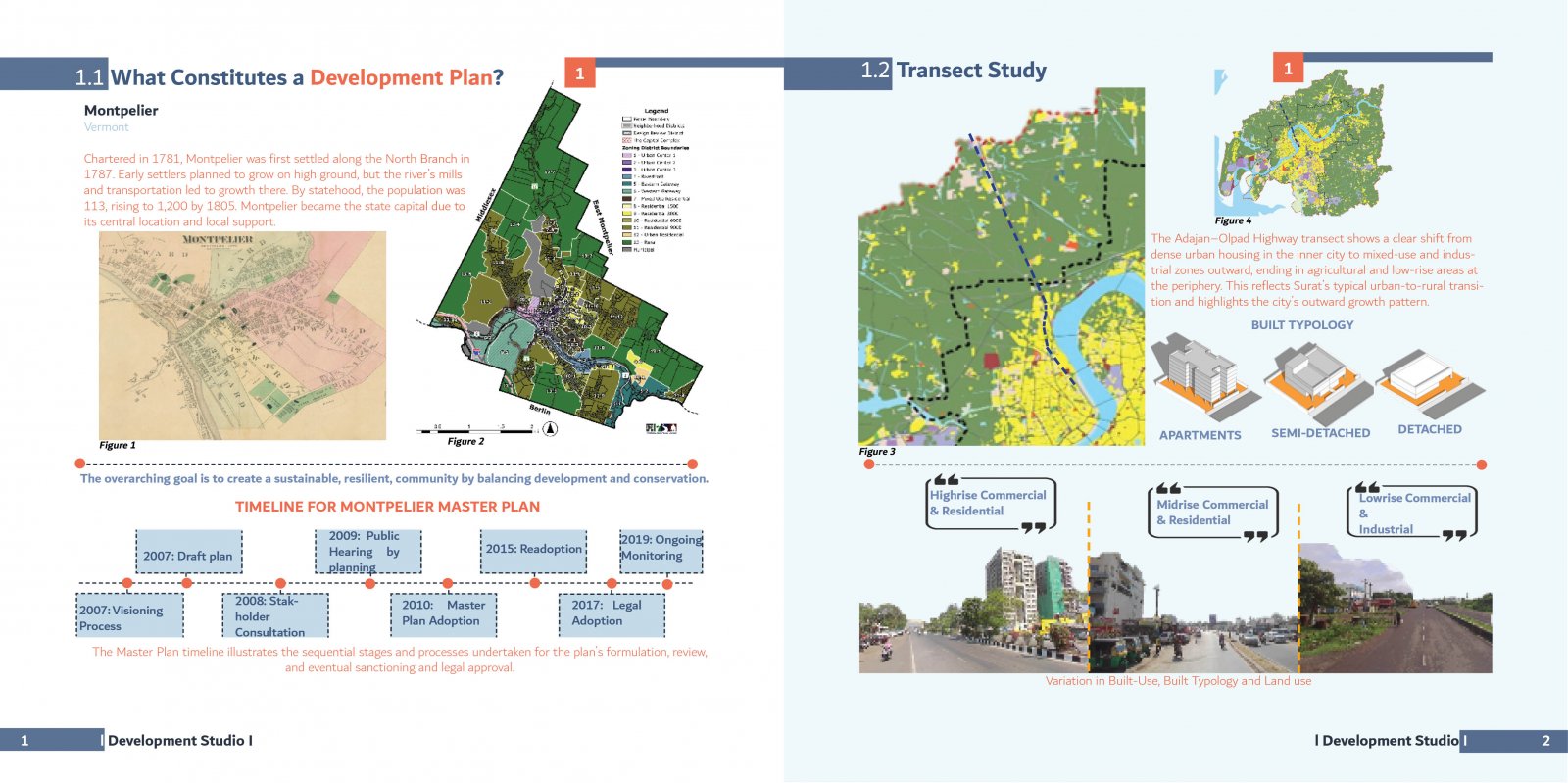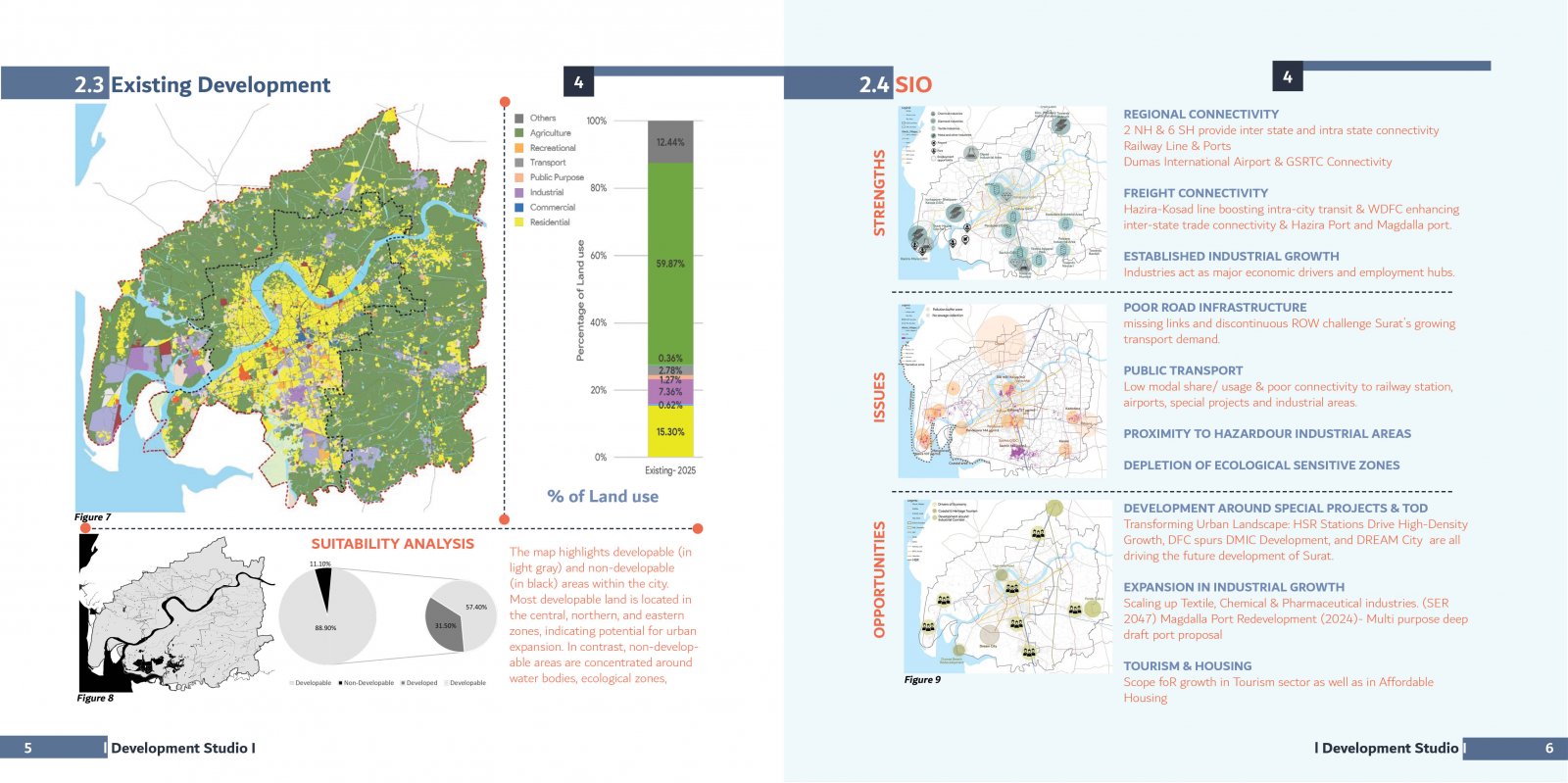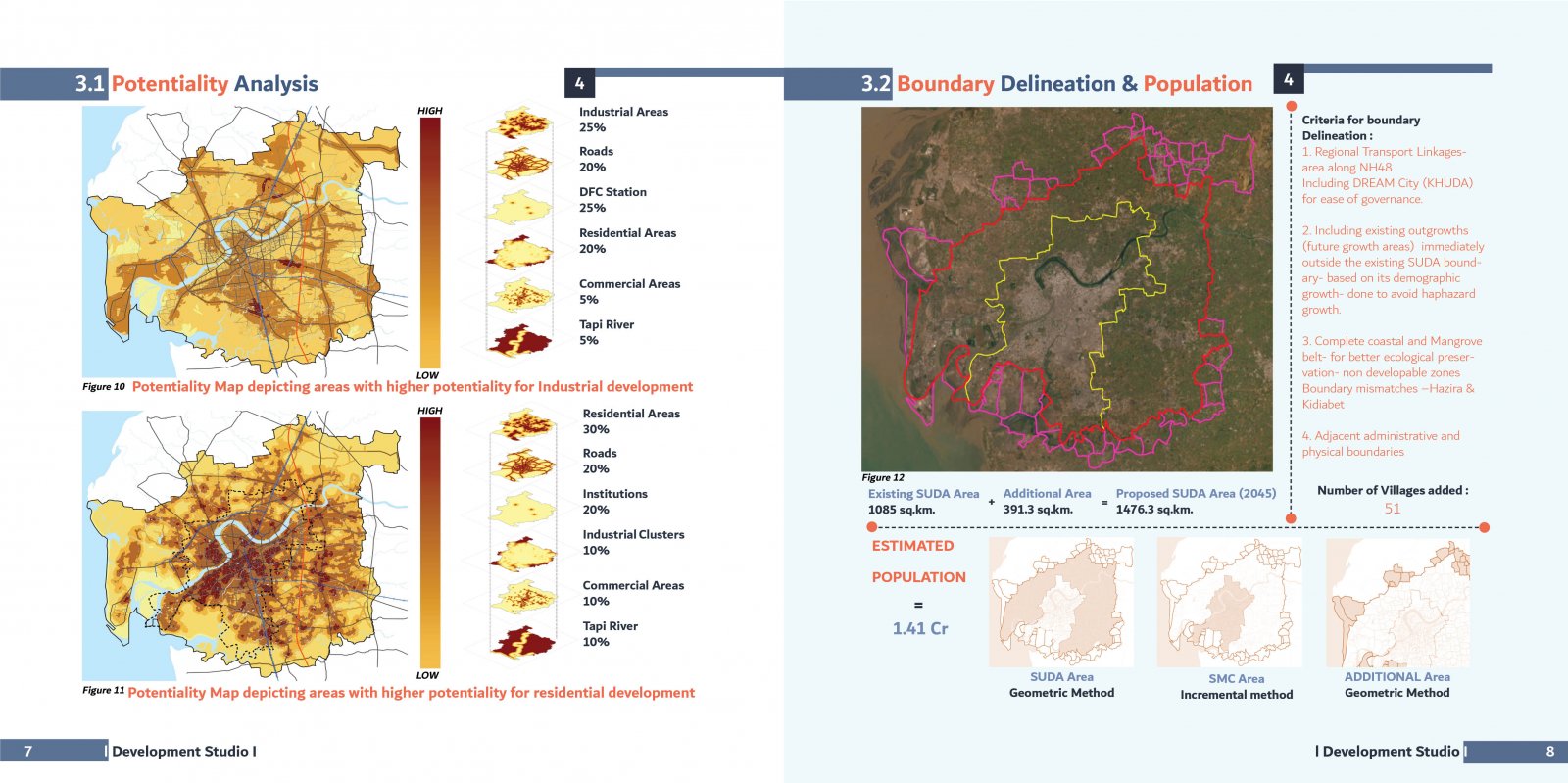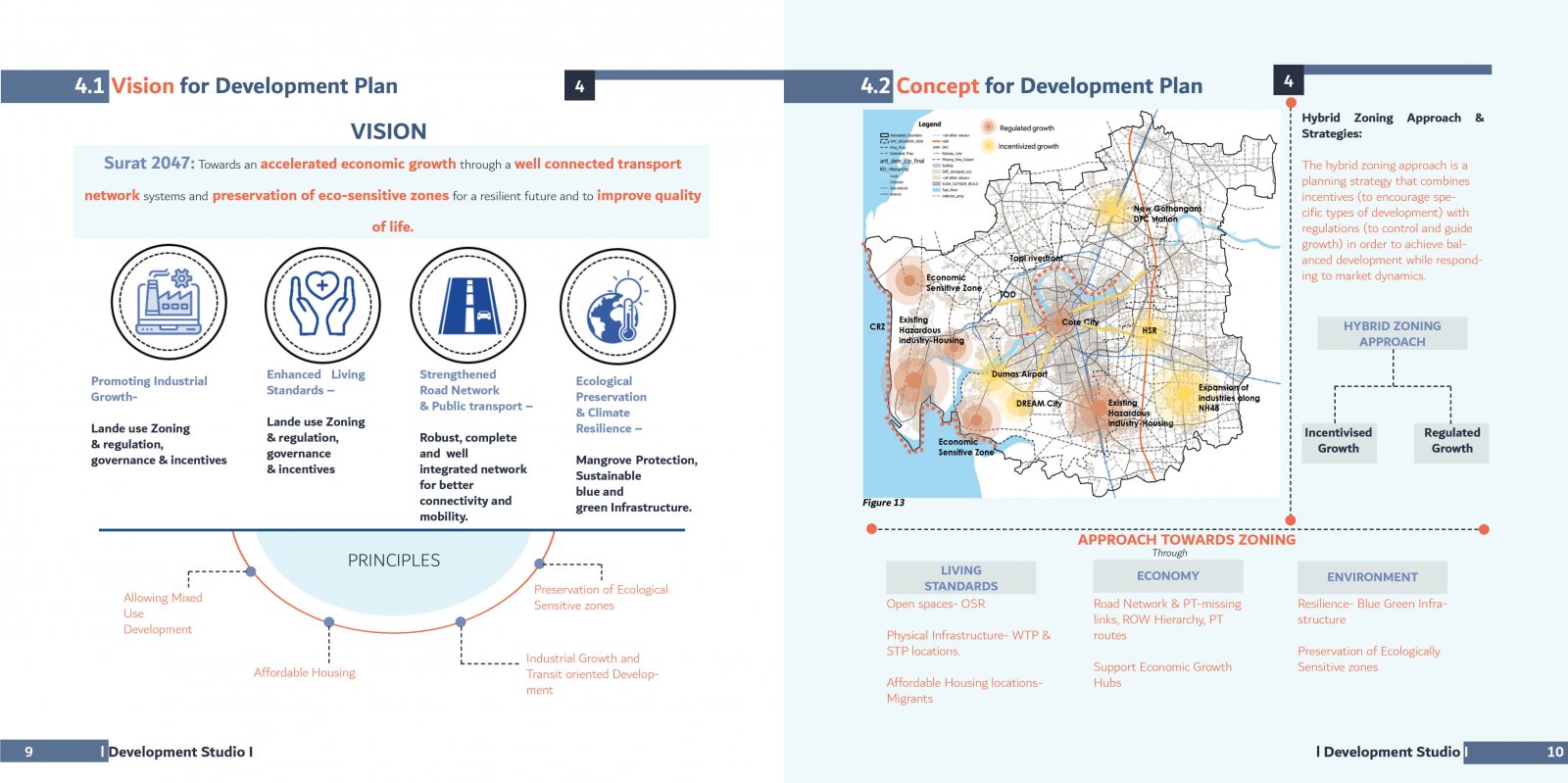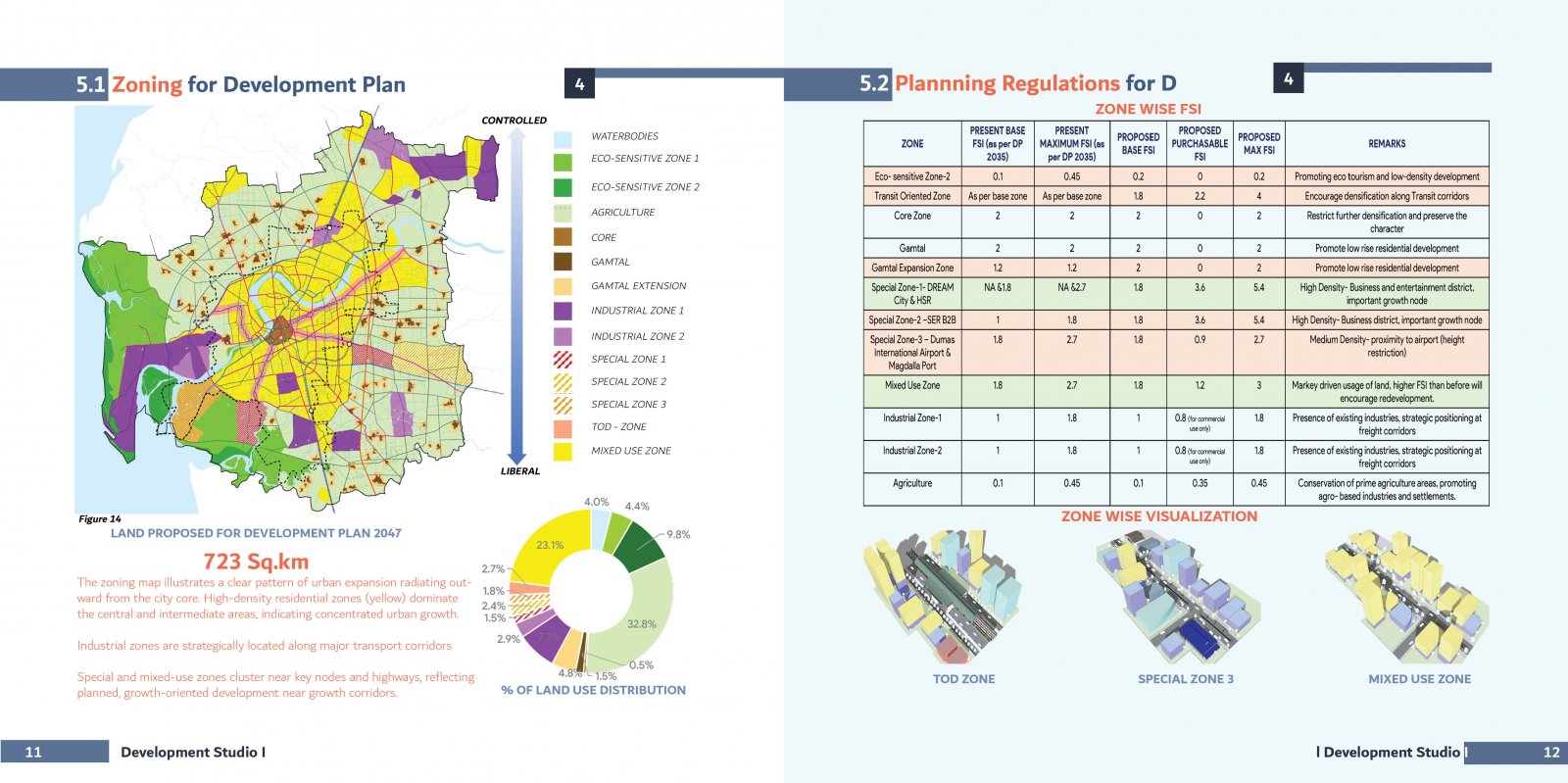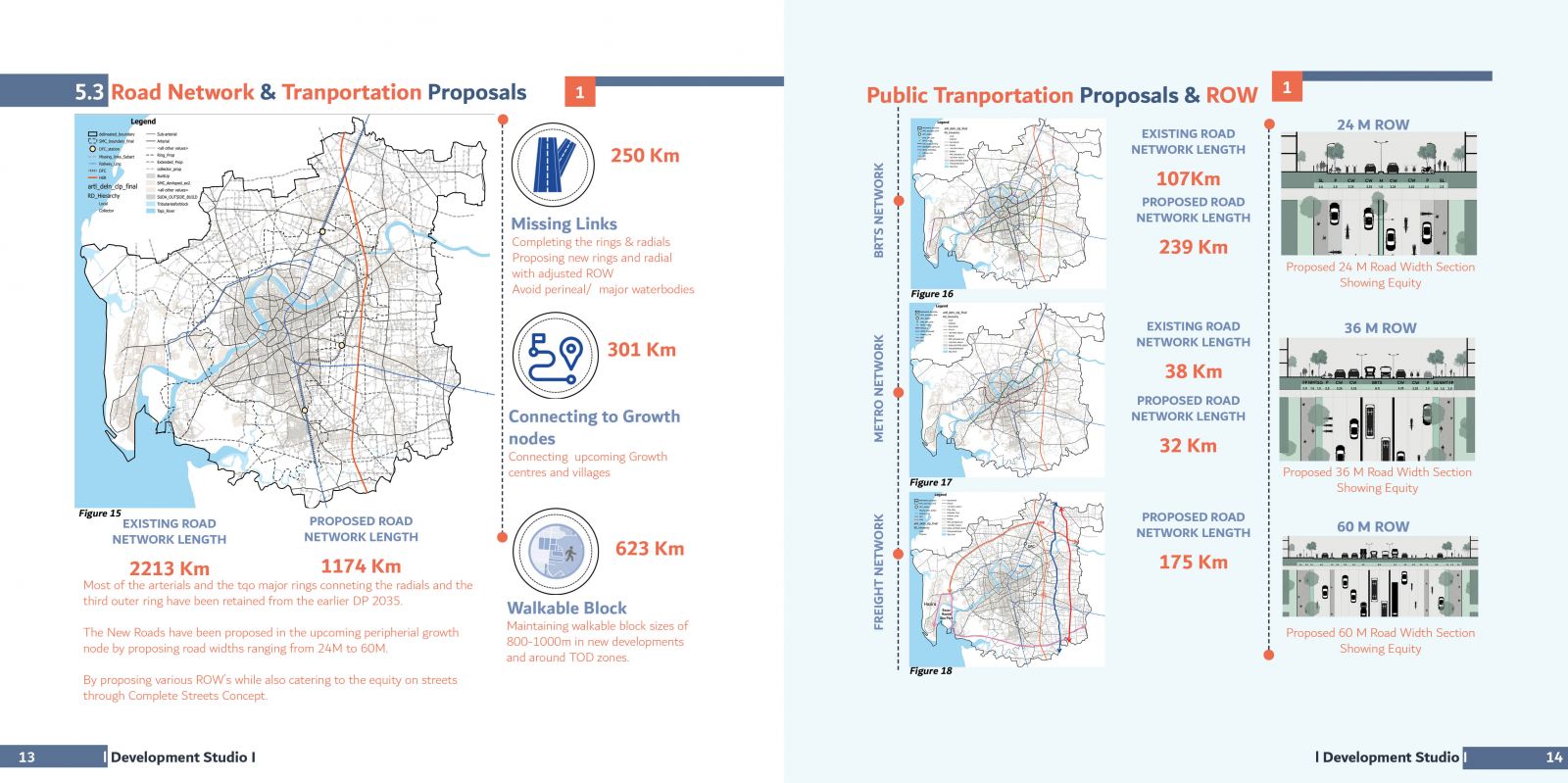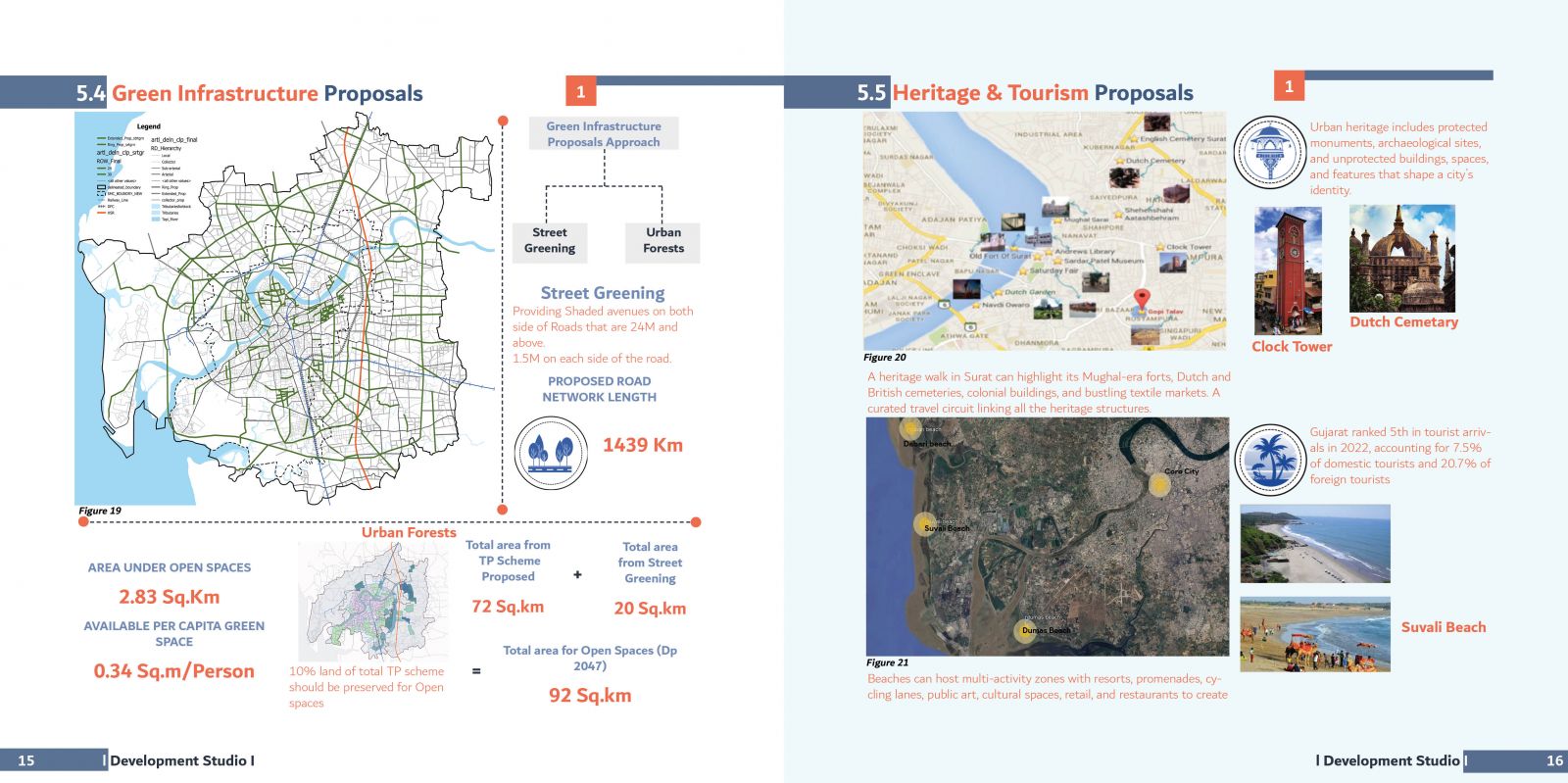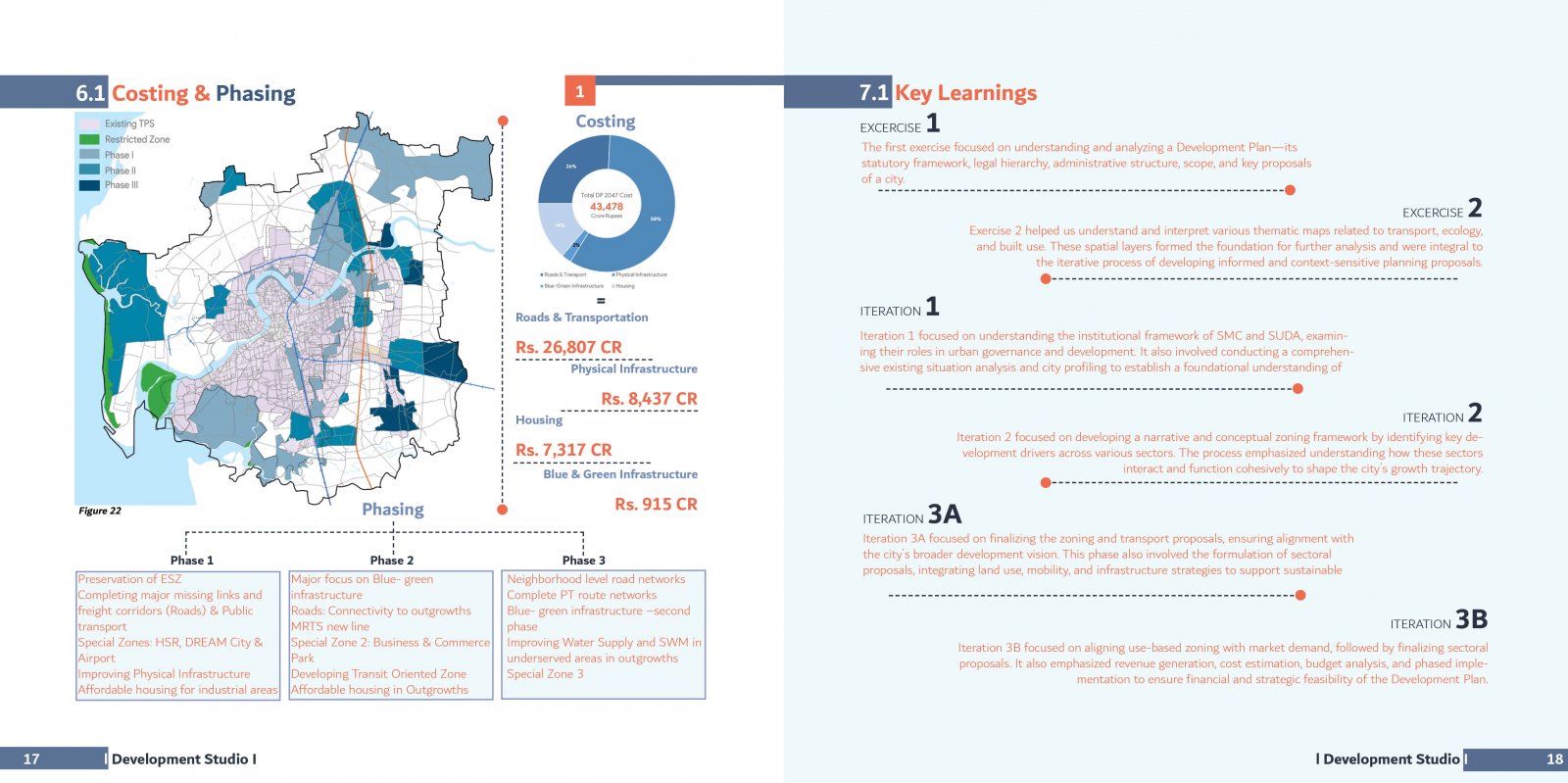Your browser is out-of-date!
For a richer surfing experience on our website, please update your browser. Update my browser now!
For a richer surfing experience on our website, please update your browser. Update my browser now!
As part of the studio exercise, students began by conducting an in-depth analysis of the current conditions of their assigned city. This involved city profiling, detailed mapping, and thorough documentation of various aspects. The research phase was carried out in larger groups to build a collective understanding of the urban context. Later, the class was divided into smaller teams, each responsible for crafting a vision for the city's future, identifying key planning challenges, and developing targeted strategies across sectors such as transportation, housing, infrastructure, environment, and the local economy. Each team also worked on preparing land use proposals, designing road networks, formulating development control regulations (DCRs), and outlining phasing and cost estimates for proposed interventions. To broaden their perspective, students studied planning models from other cities and compared different approaches. The final deliverable was a detailed and well-rounded development plan supported by a professional presentation tailored to the unique needs of the city in focus.
